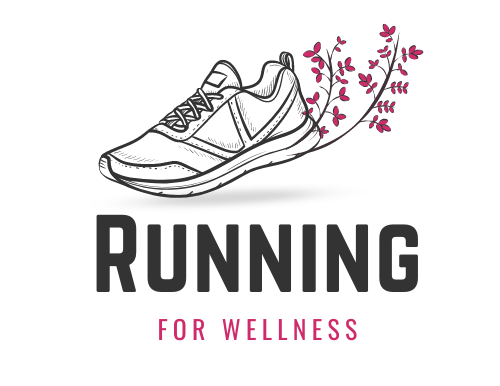Mental health challenges can be tough. It’s easy to feel alone and unsure where to turn. Here are ten reminders to help you find your footing again.
They provide simple, straightforward advice for those harder days.
Table of Contents
Toggle1. You Are Not Alone

Feeling isolated is a common response when dealing with anxiety, depression, stress, or other mental health challenges. The thought that your experiences are unique can intensify feelings of loneliness.
However, the reality is far from this perception. A significant portion of the population, about one in four individuals, faces mental health issues each year. This statistic highlights a shared experience among many, underscoring the fact that you are part of a large community facing similar battles.
Remember, despite the isolation your mind might convince you of, a vast network of people understands and shares your struggles.
2. You Won’t Feel This Way Forever

I know from my own experience that when things are bad, it feels like it will stay like that forever.
When you’re stuck with negative thoughts, it’s difficult to even imagine that the light will get back at some point.
So, try to remind yourself that no matter how hard the times are at the moment, positive things might be waiting at the first corner.
You can never tell what tomorrow will hold and there is always hope for a brighter future.
3. You Deserve to Take Care Of Yourself

Your mental, physical, emotional, and spiritual health must be a priority. Say to yourself that you deserve to be taken care of. That is the only path to follow.
It will ensure having enough energy to take care of others.
It is not just limited to your physical needs. You also must take care of your intangible needs too.
A good step for your mental health could be seeing a therapist or making time for daily meditation.
Complementing your emotional health could include spending time with a good friend once a week.
When it comes to spiritual health, that could include going to church or spending time praying every day.
4. It’s Okay to Not Feel Good All the Time

Messages like “Don’t worry, be happy!” or “Always look on the bright side!” are examples of what some call toxic positivity. These phrases aim to uplift but can end up making people feel worse.
They suggest that you should suppress negative emotions and maintain a positive outlook at all times. However, it’s natural not to feel happy or positive constantly.
Every person experiences a range of emotions, and it’s healthy to acknowledge and express them. Pretending to be happy when you’re not only leads to feeling invalidated.
Accepting your feelings as they come, both good and bad, is crucial for genuine emotional health.
5. It’s Okay to Ask For Help
Life presents challenges that can be too complex to handle alone. Recognizing when you need support and seeking it out is a strength, not a weakness.
Whether it’s confiding in a trusted friend, family member, or seeking professional advice from a therapist or counselor, reaching out is a positive step.
Modern resources like therapy apps also offer accessible avenues for assistance. Remember, help is always available, and asking for it can significantly improve your well-being.
6. It’s Okay to Take A Break

The culture of constant work, often celebrated as being highly productive, carries the risk of burnout. This “hustle culture” values long hours and high output, but it overlooks the importance of rest and self-care.
Compliments for hard work feel good, yet they should not lead you to neglect your well-being. The truth is, that working without adequate breaks can result in health issues, exhaustion, or worse. Your health is invaluable and should always come first.
Taking breaks is not just acceptable. It’s necessary for your physical and mental health.
7. You Matter

Feeling low might trick you into thinking you’re insignificant. Yet, the truth stands: your existence is crucial and meaningful, regardless of how you feel momentarily.
Every person has an inherent value that doesn’t diminish with changing emotions or circumstances.
Your worth isn’t tied to your current state of mind. You always hold importance.
8. You’re Not Broken

No one is without flaws or limitations, and that does not mean you’re broken. Being human involves being a work in progress, evolving through experiences.
Accepting yourself as “perfectly imperfect” aligns with the reality that everyone has areas of strength and growth. Discontent with oneself at times is universal, not a sign of inadequacy.
Often, what we perceive as weaknesses can reveal hidden strengths or lead to unexpected opportunities for growth.
9. It’s Okay To Go At Your Own Pace

The pressure to match or surpass others in achievements can feel intense.
Yet, moving through life at your own speed is not just acceptable; it’s necessary. Your worth doesn’t hinge on outperforming others or living up to external expectations.
Acknowledging your unique journey and pace is vital for personal growth and satisfaction. Everyone’s path is different, and embracing yours as it is helps cultivate self-acceptance and peace.
10. You Are Good Enough Just The Way You Are

Each person contributes their distinct gifts, shaping the world in myriad ways.
Recognizing that you were designed to be unparalleled reinforces the importance of authenticity. Stand firm in your individuality against any voices of doubt. By being true to yourself and sharing your innate talents, you enhance the world’s richness and diversity.
11. Coping with Stressors
Life’s challenges can feel overwhelming, especially during certain times of the year like the holidays, when grief, pressure, and isolation might be heightened. Developing personalized strategies for managing stress can make a significant difference in navigating these difficult periods.
- DIY Coping Cards: Write down positive affirmations or quick strategies for calming yourself and keep them handy.
- Deep Breathing and Progressive Muscle Relaxation: These techniques can help reduce physical tension and bring your focus back to the present.
- Gratitude Journaling: Reflecting on things you’re thankful for can shift your perspective and enhance resilience.
- Balanced Diet and Moderate Exercise: Maintaining physical health supports mental well-being.
- Support Groups: Connecting with others who understand your experiences fosters a sense of community and belonging.
12. Impact of Environment on Mood
Long-term social isolation can negatively impact health. Recent work suggests that even a few hours of isolation may have negative consequences by disrupting vital internal regulatory mechanisms. @AnaStijovic @SilaniLab https://t.co/uJGd0W2eRP
— Communications Psychology (@CommsPsychol) August 23, 2023
External factors, like limited sunlight or social isolation, can heavily influence mental health. Seasonal changes, particularly in winter, may bring about symptoms of depression for many individuals.
Ways to counteract environmental effects on mood include:
Consider light therapy lamps to mimic natural sunlight during darker months.
Spending time outdoors, even briefly, can boost serotonin levels and improve overall mood.
Combat social isolation by reaching out to friends, joining groups, or participating in community events.
Acknowledge the link between your physical habits and your mental state. Positive steps in one area often enhance the other.
13. Healing and Growth
It’s never too late to embark on a path toward healing and self-improvement. Life is a continuous process of evolving, and each experience—positive or challenging—can teach us valuable lessons.
Consider integrating the following into your journey:
Seeking professional support can provide clarity and tools for better mental well-being.
Growth doesn’t happen overnight but through small, consistent steps forward.
Discovering what works for you, whether it’s mindfulness, journaling, or creative outlets, can help you process emotions effectively.
Healing is not linear. Accepting that setbacks are a natural part of the process allows for greater compassion toward yourself.
FAQs
Conclusion
Taking steps towards better mental health is essential in navigating life’s ups and downs. It’s vital to remember that asking for help, acknowledging your feelings, and giving yourself permission to rest are not signs of weakness, but rather of strength.
Everyone’s journey is unique, and moving at your own pace is key to personal growth. Embrace your individuality and recognize the value you bring to the world. By doing so, you foster an environment of self-compassion and resilience that supports your well-being.
Related Posts:
- Top 400 Hilarious Gym Quotes to Keep You Motivated
- Half Marathon Training Plan for Beginners - Simple…
- 25 Simple Running Motivation Tips To Get You Moving
- 80 Best Motivational Cross Country Running Quotes 2025
- How Long Does It Take to Train for a Half Marathon?
- Early Warning Signs of Depression and Anxiety in…







